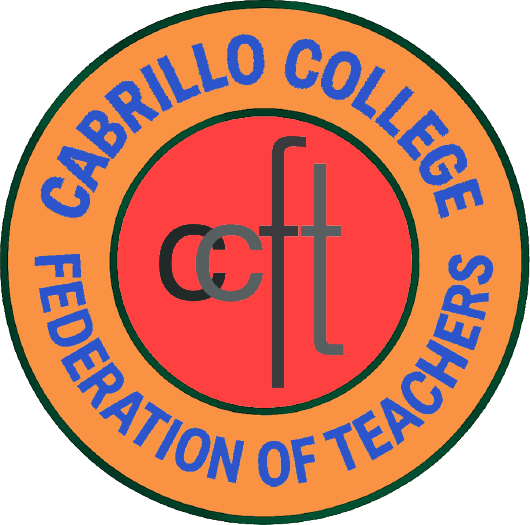I’m encouraged by the response educators have had in relation to our undocumented, vulnerable and targeted students. CCFT passed a resolution at our flex week Council meeting and the Cabrillo College Governing Board has adopted several over the past few months to show their solidarity with our students. While I’m encouraged by these efforts, they bring with them a set of bittersweet questions. Simply stated, they send a clear message, but will it be received? Will those contemplating changes in enforcement policies and changes in our laws acknowledge our will?
David Lau, our communications director and a fierce advocate for all underrepresented people, believes we are again entering an era where simply attending school and taking classes is a powerful political act. To me, these resolutions affirm our commitment as a community to make education possible for everyone. We can’t deny the risks our students face, nor can we completely shoulder that risk ourselves. We can commit to walking the path together and minimizing the risks our students face with every tool at our disposal.
In Defense of the Long Game
As some of you may know, I’ve been involved in Cabrillo’s Engineering Abroad Program since its inception. We’ve made four trips to Guatemala to work in Vuelta Grande, a small Mayan community about 30 minutes outside of Antigua. While the mix of projects change from year to year, we’ve always devoted significant effort and resources to increase the community’s water storage capacity. The community has a spring that supplies water for 8 to 9 months of the year, but the dry season presents quite a challenge. The only local source of water would be from water tanks near the road that have been filled by a truck that brings water up from Antigua. When these are empty, the only choice is to walk several miles in mountainous terrain to a water source outside the community. It is important to realize that every drop of water used in homes is carried there in jugs and buckets. Nearly all this work falls on the women and children of the community. The need for water is non-negotiable and if a family needs to devote several hours and several people to the task they will do so.
In our four trips to work in this community, we’ve conservatively added 7500 gallons of storage accessible to the water trucks. To put this number in context, there was about 600 gallons of community storage close enough to the road to be filled by the trucks when we first arrived. On our most recent visit in January, the community shared some statistics of how the demographics of the school had changed in the last four years. In 2013/14, the school served about 60-70 students of which about 20% were girls. In 2016/17, the school serves over 200 students of which more than 50% are girls. These changes are part of a much wider cultural change and the result of the efforts of many, many people, but the community and students thanked us for playing a part. Whenever we can release people from hours of work required for basic survival, we leave the door wide open for change. I’m so proud of our students, donors, and grantors for allowing us to play a part.
To try to bring these lessons home I will say this: We, your union representatives, are hopeful that our efforts free you to do the work you love with less organizational friction. We work from the perspective that the changes we are advocating for the good of faculty are also good for the college and that the quality of our work will echo through the lives of our students.








